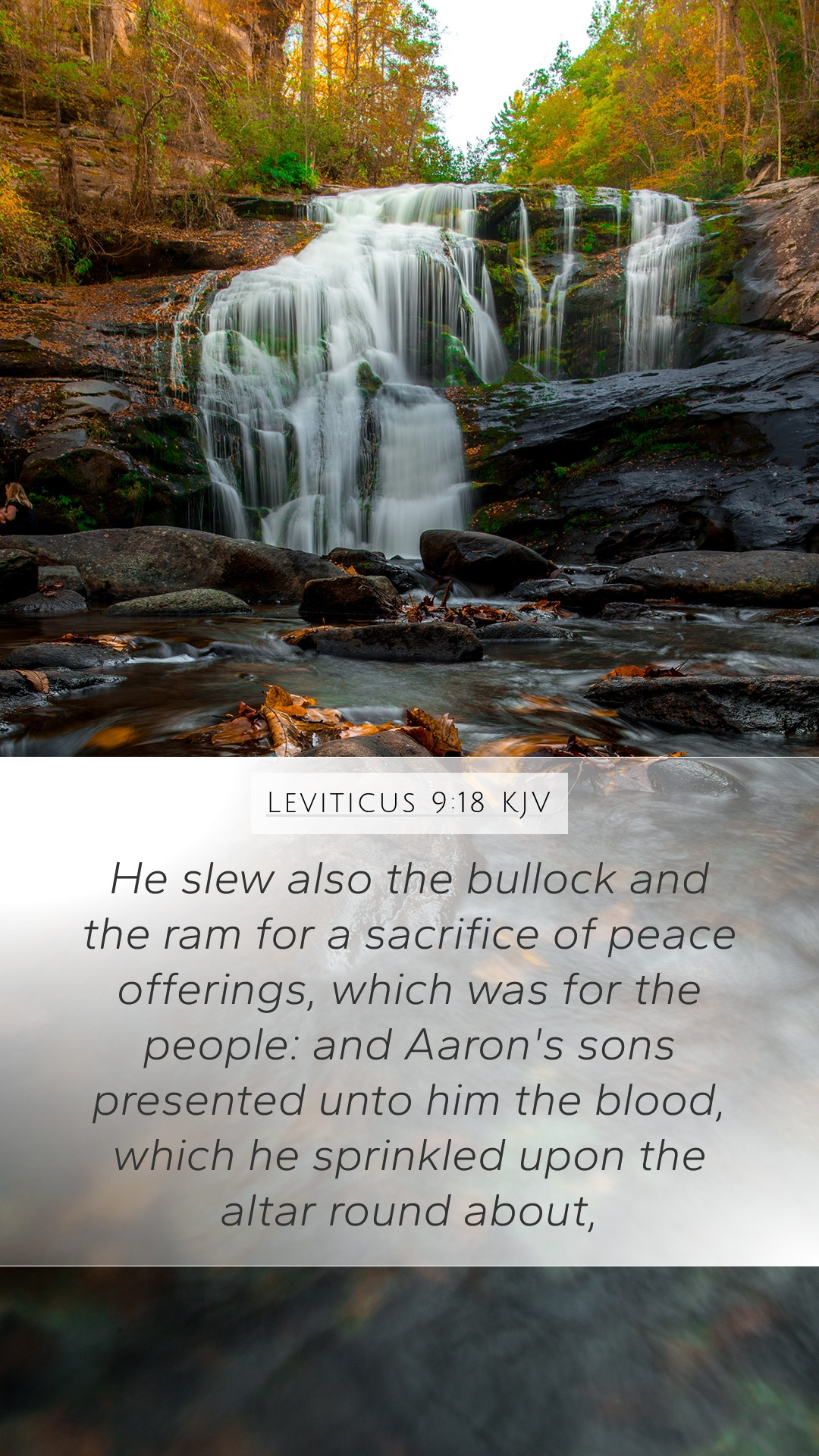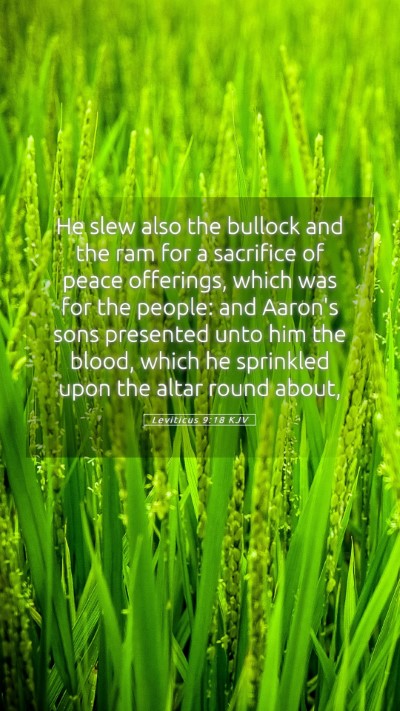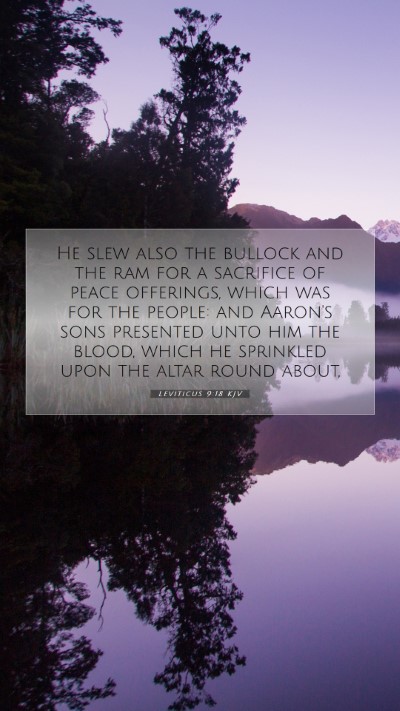Understanding Leviticus 9:18
Bible Verse: Leviticus 9:18 - "And he killed the bullock and the ram, and the people laid their hands on the burnt offering, and the priests offered the blood upon the altar round about."
This verse occurs in the context of the inaugural worship service in the Tabernacle following Aaron's consecration. It illustrates the ceremonial practices instituted under the Law of Moses, important for understanding the sacrificial system that prefigures New Testament truths.
Bible Verse Meanings
Leviticus 9:18 encompasses profound elements of sacrifice, priesthood, and communal worship that hold significant weight in Biblical exegesis. The act of the bullock and ram being offered as sacrifices serves several purposes:
- Sacrifice for Atonement: Matthew Henry notes that the blood of sacrifices serves as a means of atonement for sin, pointing symbolically to Christ as the ultimate sacrifice.
- Priestly Role: Albert Barnes emphasizes the importance of the priestly mediation between God and the people, echoing the New Testament theme of Christ as our High Priest.
- Community Involvement: Adam Clarke highlights that communal participation (laying hands on the offerings) signifies the transfer of guilt and the unity of the congregation before God.
Bible Verse Interpretations
The interpretations surrounding this verse delve into its historical and theological ramifications:
- Historical Context: The sacrificial system outlined in Leviticus was a pivotal part of Israel's worship practices, confirming their covenant relationship with God.
- Symbolism: The bull and ram symbolize strength and devotion, reflecting the qualities with which Israel was to approach God in worship.
- Preparation for Holiness: This verse acts as a precursor to the regulations surrounding the priesthood and sacrifices, essential for understanding the rituals of the Old Covenant.
Bible Verse Understanding
To grasp the full essence of Leviticus 9:18, readers should consider its place within the greater narrative of Scripture. It sets the stage for understanding God’s holiness, human sinfulness, and the path to reconciliation:
- Divine Order: The meticulous instructions for sacrifices reveal God’s desire for order and holiness in worship.
- Foreshadowing Christ: The sacrificial lambs and bulls serve as types pointing to Jesus Christ, the Lamb of God.
- Covenant Theology: This pivotal verse reinforces the concept of covenant, where sacrifices serve as a bond between God and His people.
Bible Verse Explanations
In providing explanations of Leviticus 9:18, it’s essential to delve into several key aspects:
- The Role of Sacrifice: Sacrifices are not merely ritualistic but hold significant meaning in conveying the seriousness of sin and the need for atonement.
- Communal Worship: The act emphasizes the communal aspect of worship where the nation collectively participates in the sacrificial system.
- Impact of Blood: The application of blood on the altar signifies God’s acceptance of the sacrifice and His provision for forgiveness.
Related Bible Cross References
- Hebrews 9:12: Points to the ultimate sacrifice of Christ as the fulfillment of the sacrificial system instituted in the Old Testament.
- Exodus 29:10-14: Discusses the procedures for the consecration of Aaron and his sons, aligning with the themes of Leviticus 9.
- Leviticus 4:32-35: Details the sin offerings and their purpose, helping to contextualize the significance of blood in atonement.
Application of Leviticus 9:18 to Daily Life
In light of Leviticus 9:18, believers today can glean valuable insights for practical application:
- Understanding the seriousness of sin and the necessity of repentance as an ongoing part of Christian life.
- Recognizing Christ's role as our High Priest, enabling direct access to God without the need for sacrificial offerings.
- Driving the importance of community in worship and the shared responsibility of honoring God as a body of believers.
Bible Study Insights
This verse is foundational for Bible study groups seeking to understand the Old Covenant and its implications for the New. It's a rich topic that encourages discussion on:
- How to interpret Bible verses: Recognizing the Old Testament's cultural and historical context can illuminate our understanding of Scripture.
- Understanding difficult Bible passages: Engaging with verses such as this helps unravel complex theological themes.
- In-depth Bible verse analysis: Encourages deeper investigation into the nature of sacrifice and salvation.
Conclusion
Leviticus 9:18 demands careful inspection within the framework of the entire biblical narrative. By studying this verse, we see the intricate relationship between God and His people and how this sacrificial system foreshadows the ultimate sacrifice made by Jesus Christ. Therefore, understanding this verse is essential for a comprehensive view of both Old and New Testament theology.


